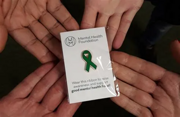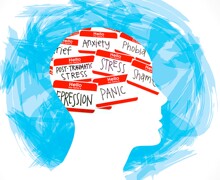Wellbeing Introduction
Welcome to the MFA Wellbeing Page.
Click Here to view our Mental Health & Emotional Wellbeing Policy
Prioritising Wellbeing: Nurturing Ourselves at Mossbourne Fobbing Academy.
At Mossbourne Fobbing Academy, we hold a steadfast belief in the significance of self-care, encompassing not only our physical health but also our overall wellbeing.
In times of struggle, the typical advice is to seek professional help. Yet, we recognise that empowering young individuals with strategies to help themselves is equally vital. With this intention, we've crafted this website as a wellspring of information, activities, and links, all geared towards fostering self-care and personal growth.
Within the realm of Mossbourne Fobbing Academy, our mission is to see you flourish in every aspect. We're dedicated to nurturing an environment where you can be your best self, fortified to triumph over life's trials collectively. Currently, we offer a sanctuary for wellbeing – our wellbeing room, hosting mentoring and counselling sessions, alongside a serene nature reserve that offers a breath of fresh air, nourishing the seeds of healthier minds.
Additionally, our comprehensive Wellbeing Tutor Time Programme is designed to foster the mental health and wellbeing of our pupils, ensuring that you're supported and equipped to navigate life's journey with resilience and vitality.
We are proud to provide the following strategies in school.
- Comprehensive Mental Health and Wellbeing policy.
- Mindfulness group.
- Dedicated days/week to acknowledge and inform about different wellbeing topics.
- PSHE Curriculum.
- Carousel of self-help & wellbeing literature available in library.
- Introduction to Mental Health evening for parents.
- Breakfast club.
- Fortnightly check-in with looked after children.
Empowering Peer Support: Standing By Each Other - When a fellow student grapples with mental health challenges, their friends often find themselves in a perplexing situation, eager to help but unsure how. Recognising the importance of safeguarding the well-being of peers, we approach each scenario individually, assessing which friends might benefit from additional support.
Our commitment extends to fostering a safe and supportive environment. Through one-on-one or group interactions, we seek to provide the necessary assistance. These interactions are sensitively guided by conversations with the student experiencing challenges, along with their parents. By collaborating closely, we navigate a path forward that aligns with the best interests and unique needs of the student in question.
- What it is helpful for friends to know and what they should not be told
- How friends can best support
- Things friends should avoid doing / saying which may inadvertently cause upset
- Warning signs that their friend needs help (e.g. signs of relapse)
Additionally, we will want to highlight with peers:
- Where and how to access support for themselves
- Safe sources of further information about their friend’s condition
- Healthy ways of coping with the difficult emotions they may be feeling.
Level of support Provision - Universal Support
- All students have a Form Tutor who acts as the first point of contact for students
- All students spend 150 minutes a week with their Form Tutor. This time consists of a daily 30 minute morning tutor time session and 3 PSHE drop down days.
- All students have access to the support of their pastoral team: Head of Year, Head of Key Stage and a Behaviour Mentor
- Students have access to the safeguarding email address that students can use to request support or communicate any concerns
- Safeguarding / Mental Health section of the website
- Safeguarding posters
- High quality in class support – all members of staff are responsible for the emotional wellbeing of students
- A whole school nurturing approach – support and opportunities for social and emotional development
- Culture within the school that values all students, allows them a sense of belonging and makes it possible to talk about problems in a non- stigmatising way. Assemblies further reinforce this and raise awareness of mental health
- A clear behaviour policy, with consistent application from all staff, so students feel safe in a calm environment and know what to expect in every lesson
- A reward system which recognises positive behaviour, personal and academic achievement, effort and other achievements. Rewards achievement certificates are awarded as reinforcement and encouragement.
Level of support Provision - Additional Support
- Welfare cards - these are given to students who have medical or menta health needs. The card is shown to the teacher, who then uses the discreet on-call alert system on their PC, to request that a member of on-call collects the students to ensure they receive the appropriate support
Level of support Provision - Specialist Support
- Individual Educational Plan (IEPs) - are used for students have multiple well-being needs and who are receiving different types of support and/or across multiple agencies
- Individual Health Plans (IHPs) - are used for students with medical conditions, including mental health conditions
- Pastoral Support Plans (PSPs) - are used for students who are at risk of permanent exclusion.
Level of support Provision - External Agency Support
- Educational psychologists’ assessment - for students whose behaviour/academic progress/mental health has been identified as requiring specialist assessment
- Thurrock substance misuse issues support services
- Early help referral - early intervention service based (see Thurrock safeguarding thresholds for support)
- Child protection referral - concerns that a child has been harmed or is at risk of being harmed
- CAMHS - referrals for students with mental health needs that cannot be adequately supported through wave 1-3
- Behaviour Support Services - mentoring and support from a behaviour specialists, for students at risk of PEX.
Guiding the Way to Wellness: Wellbeing Champions Team - In tandem with our dedicated pastoral team, a select group of staff members have undergone rigorous training in Mental Health First Aid. These compassionate individuals proudly wear the emblem of the green ribbon badge, signifying their role as Wellbeing Champions in the Mental Health Foundation. When students seek a compassionate ear to discuss their wellbeing, they can readily identify these champions.
Rest assured, these champions stand ready to listen, support, and guide. For further insights into the invaluable realm of Mental Health First Aid, we invite you to delve deeper by visiting: https://mhfaengland.org/.

If you feel you require more immediate assistance, please click here to see a list of 24/7 crisis lines for mental health trusts in Thurrock, as well as other sources of support.







